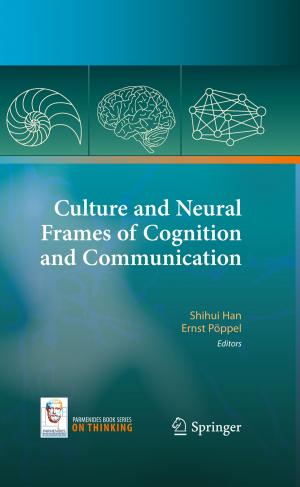Structures on the Move
Technologies of Governance in Transcultural Encounter
Nonfiction, Social & Cultural Studies, Social Science, Sociology, History| Author: | ISBN: | 9783642192883 | |
| Publisher: | Springer Berlin Heidelberg | Publication: | June 21, 2012 |
| Imprint: | Springer | Language: | English |
| Author: | |
| ISBN: | 9783642192883 |
| Publisher: | Springer Berlin Heidelberg |
| Publication: | June 21, 2012 |
| Imprint: | Springer |
| Language: | English |
This book enters new territory by moving toward a new conceptual framework for comparative and interdisciplinary research on transcultural state formation. Once more, statehood and governance are highly discussed topics, whereby modern state building is often considered to be a genuinely European characteristic, despite the fact that early modern Europeans knew of, experienced and grappled with highly developed states in Asia. The articles collected in this book discuss how strategies of governance were part of transcultural transfers between the two continents. The first part presents and discusses concepts of statehood in order to provide a set of conceptual tools for analyzing the transcultural appropriation of governmental strategies. The second part is concerned with case studies that examine the transcultural perception of governance, and the third and final part gathers perspectives on political practice in transcultural encounters (e.g. military, administration, and diplomacy)
This book enters new territory by moving toward a new conceptual framework for comparative and interdisciplinary research on transcultural state formation. Once more, statehood and governance are highly discussed topics, whereby modern state building is often considered to be a genuinely European characteristic, despite the fact that early modern Europeans knew of, experienced and grappled with highly developed states in Asia. The articles collected in this book discuss how strategies of governance were part of transcultural transfers between the two continents. The first part presents and discusses concepts of statehood in order to provide a set of conceptual tools for analyzing the transcultural appropriation of governmental strategies. The second part is concerned with case studies that examine the transcultural perception of governance, and the third and final part gathers perspectives on political practice in transcultural encounters (e.g. military, administration, and diplomacy)















